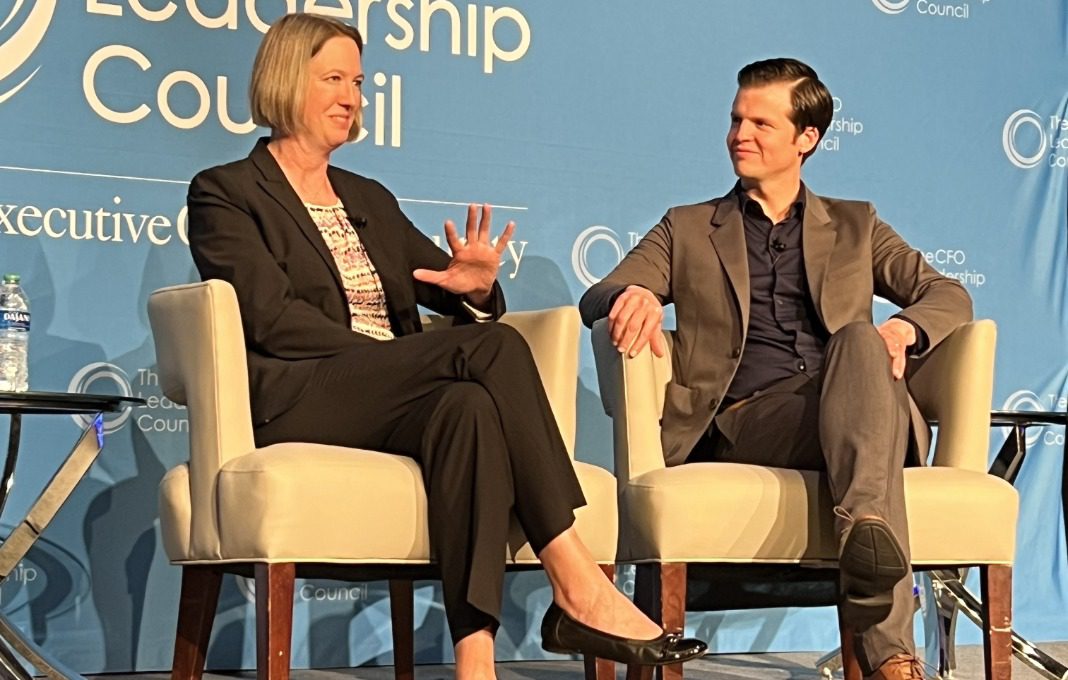What does it take to fund a winner? If anyone knows, it’s Julie Swinehart, CFO of Fenway Sports Group, the partnership company behind some of the biggest teams in sports, including The Boston Red Sox, Liverpool F.C. and Pittsburgh Penguins.
The financial engine that’s required to continually upgrade player rosters and hunt for championships is unrelenting. The trick, as she told CFOs at The CFO Leadership Council’s annual Leadership Conference in Boston this week, is a mix of delegated autonomy to each of the clubs, deep use of data analytics in unearthing opportunity and continually searching for growth.
“The foundational concept is winning,” she said. “Sure, winning feels good, but winning draws fans in. Winning increases viewership on NESN (the New England Sports Network), when folks are trying to watch the Bruins or the Red Sox games. Winning is great for our sponsors and partners, it’s brand affiliation and association. We try to make a lot of decisions at the company, and it all comes from the tone at the top with ownership to have that mindset. We’re a very competitive group.”
Revenue comes from three areas: game day dollars, like ticket sales and concessions; media contracts both local and national; and commercial, which includes advertising deals and other pursuits like real estate development. Each of the clubs has its own CFO, who also reports to Swinehart, who operates with a very lean team of 10 out of the company’s Boston office. And each of the clubs is left to make most of its own decisions on capex and perusing opportunities—and they keep the spoils from their own club’s efforts and look to use that cash for “revenue-generating capex” and of course, player costs. That’s key, said Swinehart—they don’t use wins from, say, the Penguins, to fund needs at the Red Sox, which would disincentivize the “divisions.”
“Right now in Pittsburgh, we’ve got a scoreboard project going on that you might think, okay, great, the scoreboard,” she said. “Well our scoreboard was old and—I was told—it was very small. So they’re getting a larger scoreboard and now there’s advertising space on it. So it is actually revenue generating. They’re putting in some suites. There was an old storage area that literally stored chairs and they’re making it into some event-level kind of premium space.”
Community Involvement
The teams also work hard, she says, to be sure they’re giving back to the communities in which they are so embedded—and to whom they are completely dependent for their economic success. In Boston, for instance, she said the team has been focused on “trying to bring people into the park who might not have felt welcome before, might not have had a chance.”
“This week, every sixth grader in the Boston Public Schools will come to Fenway Park and they will spend a day there, not just to kind of mess around and have fun, but Harvard has curated some content for them with physics and history and math lessons,” she said. “I used to have to find these opportunities outside of my day job to kind of feel fulfilled on the giving back and the diversity, equity and inclusion kind of efforts that have always been something I’ve been passionate about.”
Swinehart came to FSG a little over a year ago following a long career first in public accounting at Arthur Andersen and Deloitte, and later working for a series of REITs in Chicago. It would seem to be odd training for a finance post at a sports company, but, she says, there’s a lot that’s the same when you’re a CFO anywhere you go, and she leans on these core skills all the time.
Learning Curve
“I didn’t even know about the shift in baseball before they took it away this year,” she said. “There’s certainly a learning curve and I certainly still have much more to learn. But what I’ve seen is there really are some common core principles or ways that I look at the role. Relationship building is paramount—about internal relationships, external relationships with, as I mentioned, capital providers, for example. That is where I focused my first several months. And, and of course I love people and love talking to people, but building the trust and the relationships early on was key team building.
“Then the rest, it’s a lot of the same. It’s making sure you’re transparent in financial reporting. It’s making sure you’re being proactive and trying to look ahead a quarter or a year or two years or whatever your industry might have. But there are a lot more similarities than differences, and certainly some analogies to real estate…we’re in the business of bringing people together in sports.”








